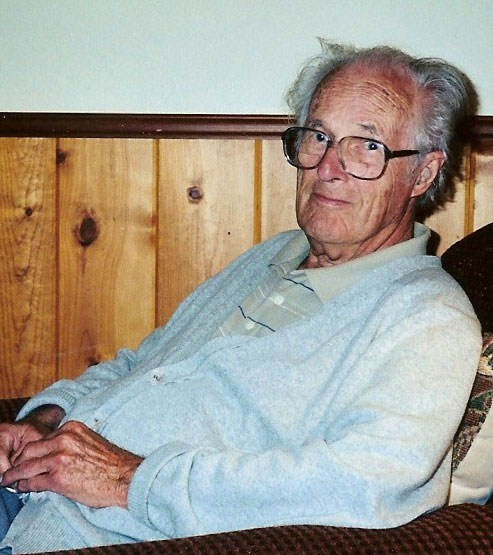The higher education community lost a legendary figure on February 5, 2011, with the peaceful passing of C. Robert (Bob) Pace at his home in Arcata, California. All of us at the Indiana University Center for Postsecondary Research extend heartfelt sympathies to the Pace family and express profound gratitude for his outstanding life’s work.
In addition to creating the College Student Experiences Questionnaire, Pace led groundbreaking initiatives in assessment, measurement, and survey research for more than a half century. He was a tireless, passionate, principled, and devoted researcher and teacher. He will be greatly missed.
Pace’s Remarkable Contributions to Our Field
- Authored many influential assessment instruments including the College Characteristics Index (CCI), College Characteristics Analysis (CCA), College and University Environment Scales (CUES), and the College Student Experiences Questionnaire (CSEQ).
- Researched and published work on a broad spectrum of topics touching nearly every aspect of American higher education in the second half of the 20th century.
- Assessed the training and overall experiences of servicemen as a civilian scientist for the U.S. Navy during World War II. Provided data used by the military in its post-war planning efforts, including helping the armed services estimate how many servicemen would use the G.I. Bill to enroll in college. Involved in the development of the Office of Naval Research and served on its first committee (alongside such notable figures as Rensis Likert, Margaret Mead, Ruth Benedict, and Erich Fromm) to help the Navy begin to establish contract research relationships with American universities following the war.
- Sat on the founding board of the Association for the Study of Higher Education (ASHE) and served actively with a variety of national organizations such as the College Entrance Examination Board (CEEB), the American Council on Education (ACE), the Social Science Research Council (SSRC), the Ford Foundation’s Fund for the Advancement of Education, and the Carnegie Corporation.
- Contributed ground-breaking research in the area of institutional-level assessment in The Demise of Diversity? A Comparative Profile of Eight Types of Institution. This and other studies in the 1970s helped identify eight unique institutional types and provided an early foundation for institution classification work now done by The Carnegie Foundation for the Advancement of Teaching.
- Taught us that to fully understand undergraduate learning and development we must measure the quality of effort students expend in using institutional resources and opportunities provided for their learning. Pace assigned much of the responsibility for learning and success on a student’s behavior, not on who they were when starting college, or on faculty or the institution (though he clearly acknowledged the importance of the learning environment). Focusing on the quality of student effort was a novel approach when Pace first began to test the concept. Thus, his work is foundational in the current movement to assess student engagement and effective educational practices. In fact, Peter Ewell, as leader of the initial design team for the National Survey of Student Engagement (NSSE), sought Pace’s advice in the pilot stages of the team's work.
Selected Books and Monographs by C. Robert Pace
- They Went to College (1941)
- Evaluation in Teacher Education (with Maurice E. Troyer) (1944)
- The Influence of Academic and Student Sub-cultures in College and University Environments (1964)
- Evaluation Perspectives (1968)
- Education and Evangelism: A Profile of Protestant Colleges (1972)
- Evaluating Learning and Teaching (1973)
- The Demise of Diversity? A Comparative Profile of Eight Types of Institutions (1974)
- Measuring Outcomes of College: Fifty Years of Findings and Recommendations for the Future (1979)
- The Credibility of Student Self-Reports (1985)
- Quality, Content, and Context in the Assessment of Student Learning and Development in College (1986)
- The Undergraduates: A Report of Their Activities in College in the 1980s (1990)
Reflecting on His Life’s Work
In 1996, John Smart, as editor of the Higher Education: Handbook of Theory and Research, began inviting distinguished scholars within higher education to author biographical essays on their professional careers and their perspectives on various touchstones in the development of the field. The first such scholarly essay published was one done by Bob Pace. A summary of his career and a pdf of his retrospective chapter entitled “Recollections and Reflections” are available to celebrate Pace’s career and many achievements.


